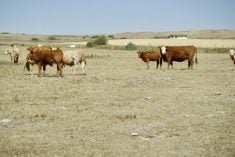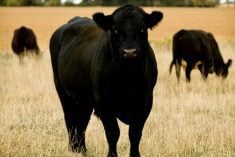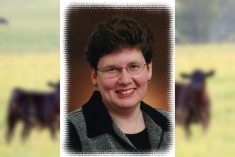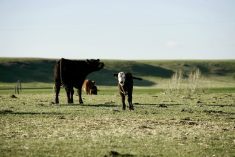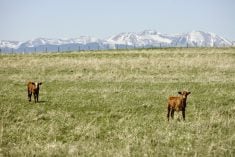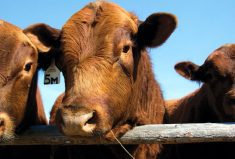Canada hopes to reopen the key South Korean market for Canadian beef exports through consultations at the World Trade Organization.
WTO consultations give member nations a chance to resolve such disputes through discussions. But if consultations don’t resolve the matter, the complaining nation may then ask that the matter be referred to a WTO dispute settlement panel.
Ottawa intensified its bilateral representations to South Korea on the issue starting last September, including ministerial-level meetings, technical discussions and, most recently, a visit March 20 by agriculture minister Gerry Ritz.
Read Also

Drought preparation is better than reaction
Glacier FarmMedia – When it comes to drought, imagining the worst may be the best way to start planning for…
South Korea’s ban dates back to May 2003, when Canada confirmed its first domestic case of bovine spongiform encephalopathy (BSE) in an Alberta cow. South Korea had previously been Canada’s fourth-largest beef export market, with sales of $50 million in 2002.
In May 2007, the World Organization for Animal Health (OIE) officially classified Canada as a controlled BSE risk country, recognizing the effectiveness of Canada’s surveillance, mitigation and eradication measures.
OIE guidelines allow trade of all beef and cattle for countries in this risk category. South Korea last June granted beef market access to the U. S., which has the same OIE controlled-risk status as Canada.
Since 2007 many of Canada’s trading partners have accepted the country’s controlled risk designation and lifted their BSE-related beef bans. More than 55 countries imported Canadian beef in 2008.
Canada’s representations to South Korea have been made by ministers, ambassadors, senior officials and technical experts presenting scientific data that far exceed what is required to justify full resumption of trade, the government said.
Cattle industry representatives had been calling on Ottawa to take this step for a few months now. “We would have preferred to reach a negotiated agreement with South Korea, and made extensive efforts to achieve one,” says Travis Toews, CCA vice-president and chairman of its foreign trade committee. “But it became clear that no progress was being made, particularly since their position has no scientific basis. We agree with the Canadian government’s decision to take this issue to the WTO.”
Consultations at the WTO level are generally held within 30 days of a request being filed, unless both parties agree to a different time frame. If consultations don’t resolve the beef dispute, Canada would be in a position to request the establishment of a WTO on Monday June 8 if no settlement is reached by then.


